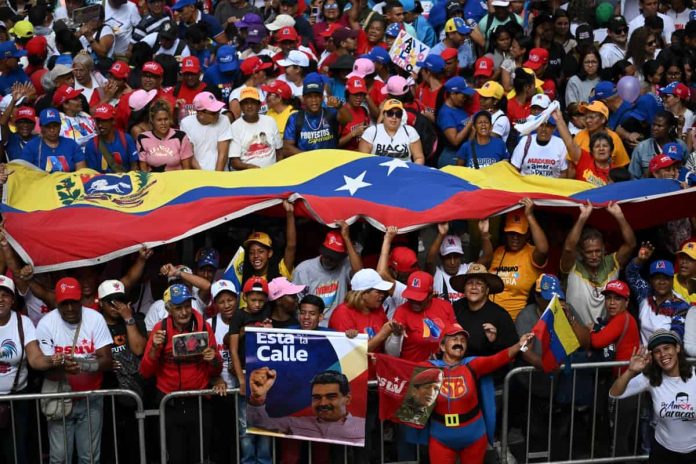Venezuela’s presidential campaign has been running at a brisk pace, gathering support ahead of the upcoming elections, but media treatment contrasts sharply.
The campaign began on 4 July. While independent and international media widely covered the rallies led by leading opposition figure Former Deputy of the National Assembly of Venezuela, Maria Corina Machado, major national broadcasters remained suspiciously silent.
State channels, when referring to Machado, often portray her as the perpetrator of Venezuela‘s economic problems. After her disqualification, confirmed by the Supreme Court, she switched to supporting Edmundo González Urrutia, a last-minute substitute unanimously supported by the opposition Democratic Unity Platform (PUD).
In a recent interview with France 24 TV in Caracas, González and Machado spoke about their uneasy relationship with the domestic media.
When was the last time you saw me on air? It’s been years. Journalists cover our events with good intentions, but the coverage rarely makes it to national broadcasts. People find out through other means.
González expressed concern about media censorship, citing restrictions on domestic travel by political leaders and alleged media blackouts to control information flows.
Censorship details
Alejandra González, a veteran journalist, noted a long-standing pattern of media control dating back to the presidency of Hugo Chávez.
“Initially, censorship targeted advertisers to strangle media finances. Later, there was an influx of buyers with vested interests.”
She hinted at the case of El Universal, a former major independent newspaper turned government mouthpiece in 2014.
Today, digital media face self-censorship, limiting free journalism in Venezuela.
National broadcasters rarely broadcast interviews with opposition leaders. Even after a brief appearance on state television, Edmundo González has since been absent from open-signal channels, despite the upcoming elections.
However, President Nicolás Maduro rejected accusations of media censorship, claiming in turn that he was the victim of social media bans and international disinformation campaigns against his administration.
As Venezuela goes through a contentious election season, media freedom remains a key issue that could influence public discourse. The issue could also affect access to information amid increased global attention ahead of the crucial vote scheduled for 28 July.
